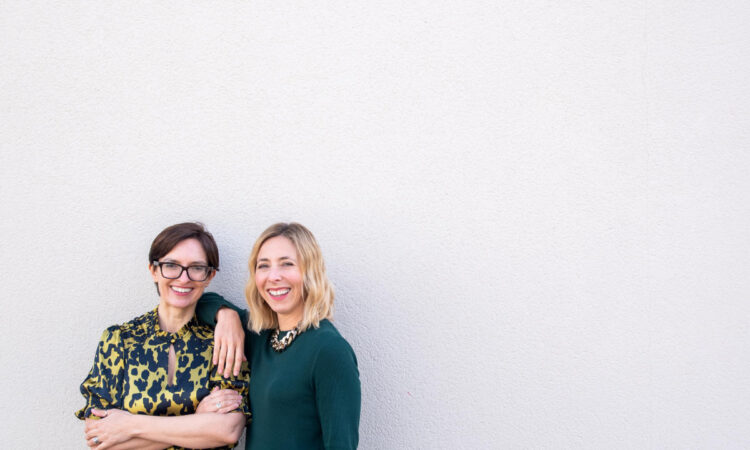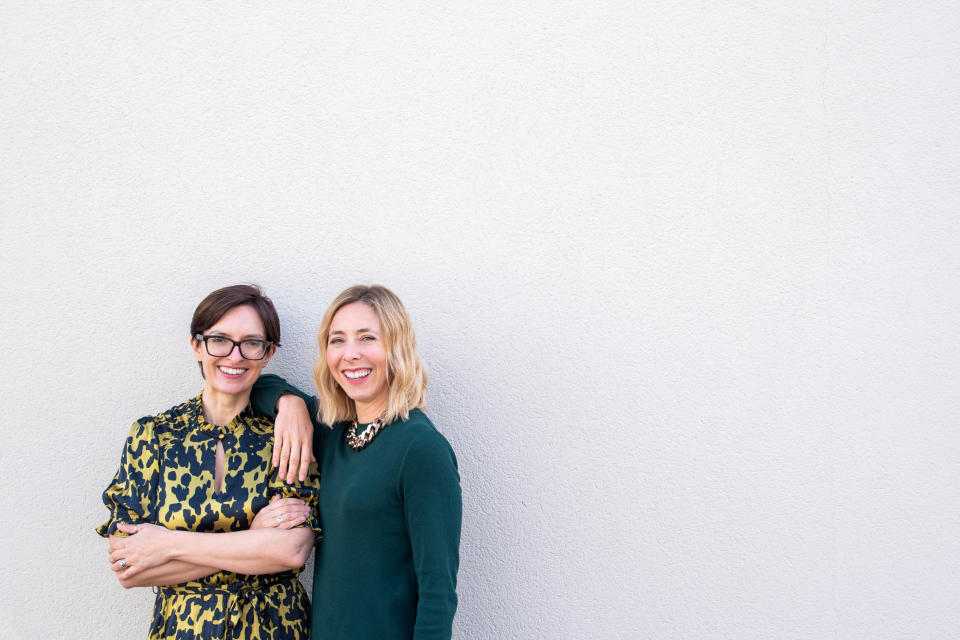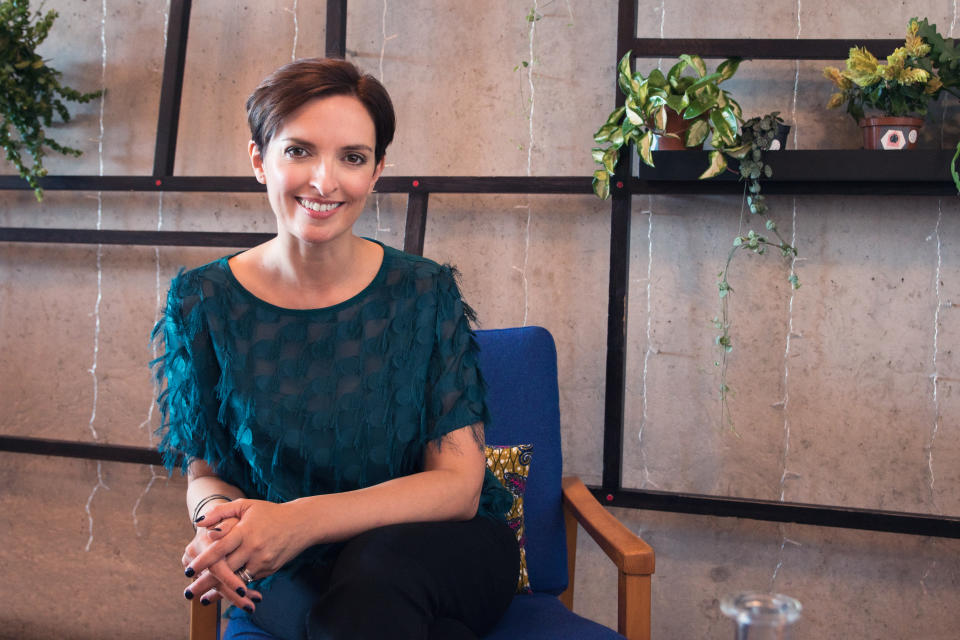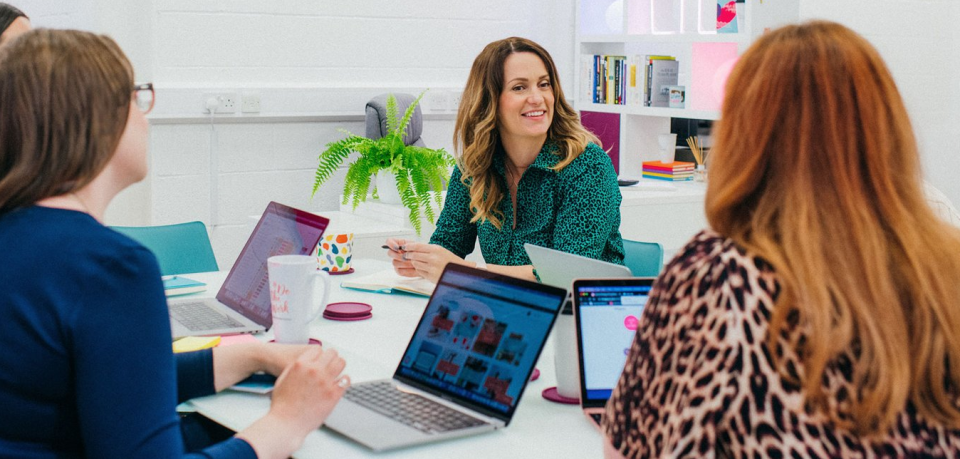

Five years ago, Sarah King was running her own design thinking consultancy and working with the likes of Red Bull and UK Sport when she was introduced to a fellow business owner, Claire Dunn, through a mutual LinkedIn connection.
King turned her design thinking into a business opportunity with Dunn and, nine weeks later, they formed Obu, an investment platform connecting eligible female-founded businesses and investors, with a mission to close the gender pay gap.
Last year, they successfully campaigned for government officials to update the age limit for businesses applying for the Seed Enterprise Investment Scheme (SEIS) and make it more accessible to more women founders and investors.
Read More: Behind the brand: Lush, the storytelling cosmetics retailer
Little wonder Obu has been described as “small and mighty” in its field. “We aren’t frightened to put ourselves in conversations where other people tell us we shouldn’t be here,” says King.
With both co-founders having forged corporate financial services careers, it gave the duo confidence of entering a regulated investment space. However, in supporting female-founded businesses, they soon found that entrepreneurs seeking investment were hitting extreme levels of inequality.
“We paused and knew we had to focus our attention on early stage investment,” says King.
The stark figures underline their decision. While over 150,000 new companies were formed by women in 2022 (all-female led businesses now accounting for more than 20% of all UK companies), less than 2% of investment placed goes into female-led businesses. Only 14% of angel investors in the UK are also women.

“The inequality on both sides stems from a system not developed with women in mind,” adds King. “What if you flipped that and based a design on a product as women as investors and entrepreneurs?
“What drives us is the desire for change and impact. When people tell us something will be difficult, we lean into it. It’s not fair that it’s so unequal and as a team that really drives us and it defines our brand.”
King describes her sector as an “energising, exciting space to be in”. This is reflected by Obu’s colourful and engaging website, alongside a podcast speaking to entrepreneurs on investment.
On the branding, she adds: “It’s full of optimism and hope, words you don’t always associate with the financial services sector. Yes, it’s a high-risk asset class but there are plenty of people who could be playing a role in shaping the businesses that can be successful.
“It’s positive for our economy, innovation, and productivity. Why should that be a website that’s a little bit dry and unengaging?”
Read More: Caxton, the pioneering payment and foreign exchange firm
They initially started out as ‘We Are Radikl’ before concluding that the Financial Conduct Authority (FCA) wouldn’t appreciate the company name. The business pivoted last year and raised £750,000 via angel investors which actioned the Obu rebrand.
The name heralds from its #overbeingunderfunded campaign, which ultimately saw the SEIS scheme extended from two to three years. It followed the founders’ personal experience of closing their initial investment round with just 48 hours to spare during the pandemic. The pair celebrated with a mini bottle of champagne and a 30-minute walk to celebrate.
“I was asked what one thing I could change about the investment ecosystems and I looked at the two-year deadline,” recalls King.

“There are a group of entrepreneurs, particularly women, if they have families they will be juggling the care of responsibilities in their household. Women are also less likely to know about the scheme and more likely to receive a ‘no’ from investors due to their gender.
“Our argument to the treasury was that the two-year deadline was an invisible barrier. We wanted to open up investment to a wider, more diverse range of entrepreneurs.”
Obu focuses on pre-seed and seed raises of £250,000 up to £1m. It recently concluded fundraising rounds for two female-founded enterprises on its platform – a femtech women’s wellbeing app called Moody Month, and ProperPlan, an AI-powered project planning outfit – and raised nearly £300,000 for the businesses.
Read More: Behind the brand: Phizz, the UK’s fastest growing effervescent brand
For now, Obu is primarily focused on the British market. “The challenges in the UK are prevalent worldwide,” admits King. “We believe our platform is scalable into other countries. It would be incredible to take Obu overseas.”
They have valid claims to do so, with estimations in the US by 2030 that there will be an additional $30 trillion in investable financial assets in the hands of women. “Our role is that there is an audience here that is overlooked,” says King. “This could be a really pivotal moment within the sector.
“I feel optimistic but we can’t ignore that investment is an unequal ecosystem. We have to call it out. This is about meaningful economic output and the UK becoming a world leader in innovation. It astounds me that somehow that investment eco system hasn’t evolved into that yet.”
Watch: Women starting own businesses report better work-life balance
Download the Yahoo Finance app, available for Apple and Android.







